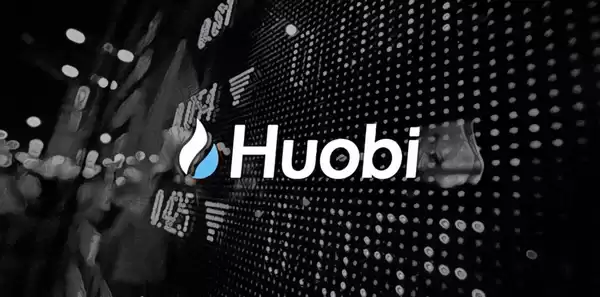-
 bitcoin
bitcoin $87959.907984 USD
1.34% -
 ethereum
ethereum $2920.497338 USD
3.04% -
 tether
tether $0.999775 USD
0.00% -
 xrp
xrp $2.237324 USD
8.12% -
 bnb
bnb $860.243768 USD
0.90% -
 solana
solana $138.089498 USD
5.43% -
 usd-coin
usd-coin $0.999807 USD
0.01% -
 tron
tron $0.272801 USD
-1.53% -
 dogecoin
dogecoin $0.150904 USD
2.96% -
 cardano
cardano $0.421635 USD
1.97% -
 hyperliquid
hyperliquid $32.152445 USD
2.23% -
 bitcoin-cash
bitcoin-cash $533.301069 USD
-1.94% -
 chainlink
chainlink $12.953417 USD
2.68% -
 unus-sed-leo
unus-sed-leo $9.535951 USD
0.73% -
 zcash
zcash $521.483386 USD
-2.87%
Difference between Huobi leverage and contract
In the sphere of cryptocurrency trading, Huobi offers both leverage and contract trading instruments, with varying complexity, trading options, fees, risk management features, and suitability for different traders.
Nov 11, 2024 at 08:52 am

In the realm of cryptocurrency trading, Huobi, a renowned exchange, offers two distinct trading options: leverage and contract. While both instruments provide amplified exposure to market fluctuations, they exhibit fundamental differences that necessitate a thorough understanding before engaging in their respective markets. This article delves into the intricate details of Huobi leverage and contract, highlighting their contrasting features, advantages, and considerations.
Distinguishing Key Characteristics- Leverage Trading on Huobi
- Definition: Leverage trading allows traders to amplify their trading positions beyond the limits of their available capital by borrowing funds from the exchange. This magnifies both potential profits and losses.
- Mechanism: Huobi offers customizable leverage ratios, ranging from 2x to 125x, which traders can select based on their risk tolerance and market outlook.
- Collateral: To initiate a leverage trade, traders must commit a portion of their account balance as collateral, ensuring they have sufficient funds to cover potential losses.
- Advantages: Potential for increased profits with limited capital, flexibility in trading positions, and enhanced market participation.
- Considerations: Risk of substantial losses if market movements are adverse, margin calls and forced liquidations, and higher fees associated with leverage trading.
- Contract Trading on Huobi
- Definition: Contract trading involves the trading of standardized financial contracts, known as futures or options, representing an agreement to buy or sell an underlying asset at a predetermined price on a future date.
- Mechanism: Contracts are traded in pairs, with one party taking the long (buy) position and the other taking the short (sell) position. Settlement occurs at the contract's expiration date, with profits or losses realized based on the difference between the contract price and the underlying asset's market price.
- Types: Huobi offers various types of contracts, including inverse perpetual futures, coin-margined perpetual futures, and options contracts, each with unique trading characteristics.
- Advantages: Access to sophisticated trading strategies, potential for leveraged returns, reduced settlement and withdrawal fees compared to spot trading, and risk management tools like stop-loss orders.
- Considerations: Complexity and higher learning curve for inexperienced traders, potential for high volatility and price manipulation, and limited availability of certain contracts.
- Trading Complexity: Leveraged trading is generally more accessible and less complex than contract trading, as it involves straightforward buy or sell orders. Contracts, on the other hand, require a deeper understanding of market dynamics, trading strategies, and risk management techniques.
- Trading Options: Leverage trading provides flexibility in choosing the leverage ratio, allowing traders to customize their exposure. Contract trading, however, offers a wider range of trading instruments, including futures and options, each with distinct features and risks.
- Settlement and Fees: Leveraged trading incurs ongoing fees for maintaining the borrowed position. Contract trading, in contrast, typically involves a one-time fee at the contract's expiration date.
- Risk Management: Both leverage and contract trading carry inherent risks, but the potential for amplified losses is generally higher in leveraged trading due to the magnification of both profits and losses. Contracts offer more advanced risk management tools, such as stop-loss orders and options strategies, which can help mitigate risk.
- Suitability: Leverage trading is suitable for short-term traders looking to magnify profits with limited capital. Contracts are better suited for experienced traders seeking sophisticated trading strategies, diversification, and long-term market exposure.
Huobi leverage and contract trading present distinct opportunities and challenges to traders. By comprehending the fundamental differences between these instruments, traders can make informed decisions about which approach aligns with their trading style, risk tolerance, and market outlook. While both leverage and contracts provide enhanced market participation, it is crucial to carefully consider the associated risks and complexities before engaging in these markets.
Disclaimer:info@kdj.com
The information provided is not trading advice. kdj.com does not assume any responsibility for any investments made based on the information provided in this article. Cryptocurrencies are highly volatile and it is highly recommended that you invest with caution after thorough research!
If you believe that the content used on this website infringes your copyright, please contact us immediately (info@kdj.com) and we will delete it promptly.
- UAE Investor Secures Major Stake in Trump-Linked Crypto Firm Amidst Shifting Geopolitical Tides
- 2026-02-02 07:10:01
- Pepe Meme Coin: Navigating the Hype, Price Predictions, and Future Outlook in 2026 and Beyond
- 2026-02-02 07:05:01
- Blockchain Gaming's Quiet Revolution: Unpacking Latest Trends and Industry Insights Amidst Market Shifts
- 2026-02-02 06:30:01
- IPO Genie, Tokenization, and YouTubers: The Big Apple's Next Big Bet on Democratized Wealth
- 2026-02-02 06:40:02
- Aptos in a Bind: Downtrend Deepens, But a Brief Relief Bounce Looms Before the Next Plunge
- 2026-02-02 07:00:01
- Pi Network, ATL, and Community: Navigating the Currents of a Mobile-First Crypto Movement
- 2026-02-02 07:00:01
Related knowledge

How to close a crypto contract position manually or automatically?
Feb 01,2026 at 11:19pm
Manual Position Closure Process1. Log into the trading platform where the contract is active and navigate to the 'Positions' or 'Open Orders' tab. 2. ...

How to understand the impact of Bitcoin ETFs on crypto contracts?
Feb 01,2026 at 04:19pm
Bitcoin ETFs and Market Liquidity1. Bitcoin ETFs introduce institutional capital directly into the spot market, increasing order book depth and reduci...

How to trade DeFi contracts during the current liquidity surge?
Feb 01,2026 at 07:00am
Understanding Liquidity Dynamics in DeFi Protocols1. Liquidity surges in DeFi are often triggered by coordinated capital inflows from yield farming in...

How to use social trading to copy crypto contract experts?
Feb 02,2026 at 07:40am
Understanding Social Trading Platforms1. Social trading platforms integrate real-time market data with user interaction features, enabling traders to ...

How to trade micro-cap crypto contracts with high growth potential?
Feb 01,2026 at 02:20pm
Understanding Micro-Cap Crypto Contracts1. Micro-cap crypto contracts refer to derivative instruments tied to tokens with market capitalizations under...

How to optimize your workspace for professional crypto contract trading?
Feb 01,2026 at 08:20pm
Hardware Infrastructure Requirements1. High-frequency crypto contract trading demands ultra-low latency execution. A dedicated workstation with a mini...

How to close a crypto contract position manually or automatically?
Feb 01,2026 at 11:19pm
Manual Position Closure Process1. Log into the trading platform where the contract is active and navigate to the 'Positions' or 'Open Orders' tab. 2. ...

How to understand the impact of Bitcoin ETFs on crypto contracts?
Feb 01,2026 at 04:19pm
Bitcoin ETFs and Market Liquidity1. Bitcoin ETFs introduce institutional capital directly into the spot market, increasing order book depth and reduci...

How to trade DeFi contracts during the current liquidity surge?
Feb 01,2026 at 07:00am
Understanding Liquidity Dynamics in DeFi Protocols1. Liquidity surges in DeFi are often triggered by coordinated capital inflows from yield farming in...

How to use social trading to copy crypto contract experts?
Feb 02,2026 at 07:40am
Understanding Social Trading Platforms1. Social trading platforms integrate real-time market data with user interaction features, enabling traders to ...

How to trade micro-cap crypto contracts with high growth potential?
Feb 01,2026 at 02:20pm
Understanding Micro-Cap Crypto Contracts1. Micro-cap crypto contracts refer to derivative instruments tied to tokens with market capitalizations under...

How to optimize your workspace for professional crypto contract trading?
Feb 01,2026 at 08:20pm
Hardware Infrastructure Requirements1. High-frequency crypto contract trading demands ultra-low latency execution. A dedicated workstation with a mini...
See all articles










































































